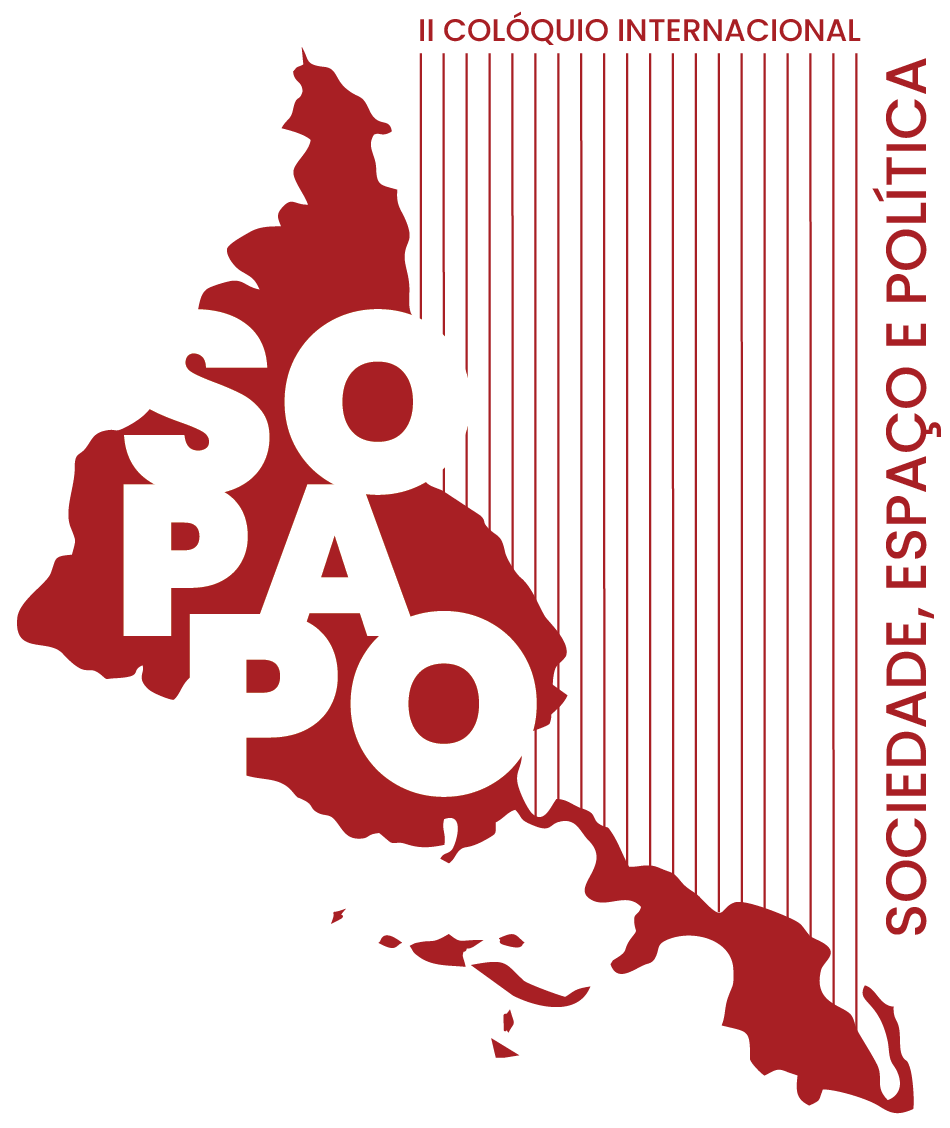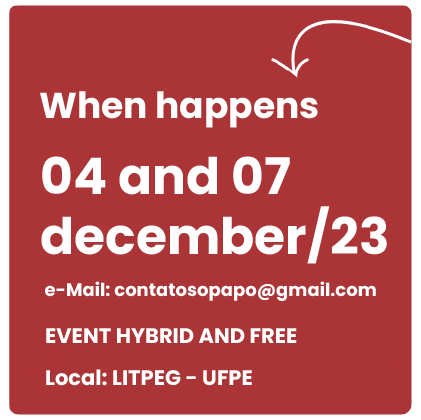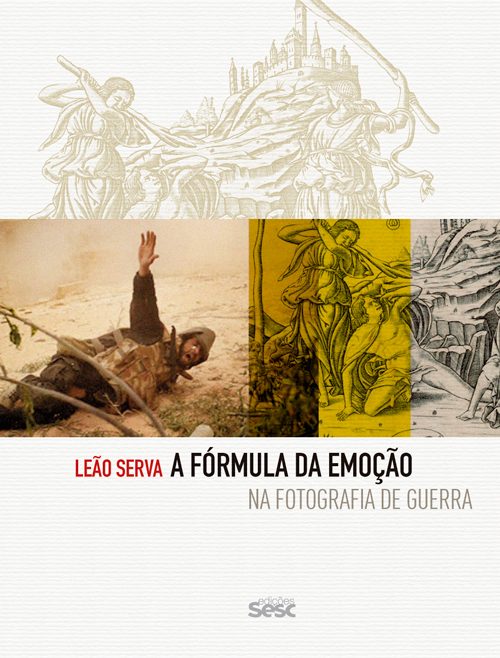

CALL FOR PAPERS
The Space and Politics Laboratory (LEP), hosted by the Graduate Program in Urban Development (MDU) and the Center for Arts and Communication (CAC) of the Federal University of Pernambuco (UFPE), will hold the II International Colloquium on Society, Space and Politics between 4 and 7 December 2023, at UFPE’s Recife Campus. This year’s theme is ‘Between streets, networks and platforms: The place of communication in geopolitics in Latin America’.
In its second edition, the Colloquium is taking place under a new conjuncture: a new progressive government, diametrically opposed to its predecessor, occupies the presidency and the highest structures of the national executive. At the same time, the national congress has never contained so many representatives from the conservative right. This introduces a new logic of dispute for the power that these positions retain. Meanwhile, contemporary society, immersed in new forms of communication that impel the public to consume “more of the same”, is finally facing up to an important debate regarding internet transparency and the use of juridical-legal instruments to address the problem of fake news and, in particular, its impact on the political spectrum.
While SOPAPO I arose from the pressing need to discuss capitalism from the perspective of ultraliberalism and geopolitical arrangements producing a new international division of labor, the second edition focuses on recent discussions on the role of the public sphere in the construction of consent and the influence of ultraliberalism’s rise in the construction of narratives.
It should be noted that for the purposes of this Colloquium, the public sphere is understood beyond just the role of the media, to encompass spaces of collective organization, such as churches, political party meetings, etc. Due to the influence of churches in influencing the voting behavior of their followers in the 2018 and 2022 presidential elections, we are particularly interested in discussing their role in the construction of narratives and counter-narratives and how their presence is established in different territories.
The event is an opportunity to exchange knowledge generated in recent years and to disseminate research, analysis and collective manifestations that address geopolitical dynamics, the rejection of hegemonic policies and movements, and resistance in the territory. We therefore take the following as our guiding question for the second edition: how have narratives and counter-narratives been constructed in the face of a possible ultraliberal regime of accumulation?
Target audience: professors, students, scholars, researchers, professionals and practitioners in the fields of urban and regional planning, geography, sociology, anthropology, political science, social communication, law, economics and related areas.

THEMES
Based on the theme ‘Between streets, networks and platforms: The place of communication in Latin American geopolitics’, SOPAPO II invites students, researchers and professionals to present works, in the form of extended abstracts and posters (exclusive to undergraduate students), for presentation in sessions addressing the following topics:
A. The ultraliberal agenda in Brazil and Latin America
This theme will explore research that addresses the role of Brazil and Latin America from the perspective of geopolitics and the international division of labor. It will examine how, throughout history, agreements between elites, both global and local, and social consensus maintaining the global order and class power in favor of the economic elite have been established. In this edition, we wish to problematize ultraliberalism as a possible new regime of capitalist accumulation.
In this regard, the theme addresses the process of regulating the ultraliberal mode of accumulation, with the role of the state as a central element of this process. We welcome works that engage with the following topics:
– Experiences around the world of the imposition of the ultraliberal agenda;
– The impasse between representative democracy and the rise of fascism;
– Deregulation of the labor market;
– Reforms driving the ultraliberal agenda (in areas such as education, health, social security, tax reform, etc.);
– The dismantling of the welfare state and territorial impacts of the ultraliberal agenda.

B. The Public sphere and construction of consent for the ultraliberal agenda
Post-truth, fake news, cancel culture, bots, mass shootings, big data, trends – even if these terms are not yet part of the popular vocabulary, their influence in shaping public opinion, in current political practice, and in the defense of democracy is undeniable.
Historically, the public sphere has produced ideas that, as a result, condition collective decisions (such as the popular vote) using instruments of mass communication with the aim of building consent around the maintenance of the status quo.
In recent years, despite the revelation of agreements between traditional media, large technology companies and social networks with institutions, movements and political actors by independent journalistic outlets, there has been little change in collective behavior towards freeing society from the prevailing hegemony. However, a new development concerning the regulation of social networks in the Brazilian context is the bill 2630/2020, which aims to establish the Brazilian Law of Freedom, Responsibility and Transparency on the Internet.
This theme, then, deals with the construction of consent for an ultraliberal agenda. We welcome works that address:
– The public sphere and the construction of consent;
– Social networks and digital bubbles;
– Media and disinformation;
– The regulation of social networks;
– Digital colonialism;
– The role and possible expansion of religion in the construction of consent.

C. Collective demonstrations and social movements
This theme will explore how social movements and popular struggles are organized in Latin America, in a context of ultraliberalism and attacks on human rights, which have caused an aggravation of social inequalities and the criminalization of social movements and collective demands.
Both during the violent process of European colonization and under US imperialist domination, Latin American territories have pulsated with resistance, though this history of struggle is still little known today. It is from these openings and memories of popular struggle that we can find paths for debating popular sovereignty and social justice.
This raises important questions: Why do popular organizations emerge and what do They demand? How and where are collective manifestations and social movements territorialized? What are the temporalities of movements and how does this affect the mobilization of the masses? Who are the subjects that organize themselves through popular struggles?
This theme, therefore, addresses counter narratives regarding how social groups and the media have acted in the socio-political formation of the working class. We welcome interventions on the following topics:
– Social movements and collective demands;
– The role of progressive media in socio-political formation;
– Struggles for the right to land, territory, housing and other social rights;
– Digital resistance and strategies against narratives;
– Religion and progressive socio-political formation.

4 December, 9.30–11.30
EVENT COMPLETE PROGRAMME
6 December, 9.30–11.30
COMISSÃO TÉCNICA
Aleksander Aguilar Antunes (UFPE-UCR)
Ana Pontes (UFRPE)
Ana Maria Morales Troya (Universidad Nacional de San Martín – Equador)
Ana Patrícia Maldonado (Universidade de Harvard)
Aura Gonzalez Serna (Pontificia Universidad Bolivariana de Medellin)
Cláudio Jorge Moura de Castilho (UFPE)
Cristina Pereira de Araujo (UFPE)
Eduardo Oliveira (UFPE)
Edvania Torres (UFPE)
Everaldo Costa (UnB)
Fatima Lucena (UFPE)
Fátima Cruz (UFPE)
Felipe Milanez Pereira (UFBA)
Harley Silva (UFPA)
Isabella Gonçalves (UFMG)
Isadora Guerreiro ( FAUUSP)
Izabella Galera (UFPE)
Janssen Felipe da Silva (UFPE)
Joanildo Burity (FUNDAJ, PPGS/UFPE)
José Policarpo Junior (UFPE)
José Luiz Quadros (UFMG)
Juliana Marcús (UBA)
Karina Leitão (USP – LabHab)
Leo Name (UFBA)
Luciano Muniz Abreu (UFRRJ)
Marcos Costa Lima (UFPE)
Maria Eduarda Rocha (UFPE)
Monica Louise Sarabia (UFPE)
Norma Lacerda (UFPE)
Otavio Santos (UFRPE)
Pedro Nóbrega (UNIVASF)
Pedro Nunes (UFPB)
Raquel Garcia Gonçalves (UFMG)
Renato Emerson (IPPUR/RJ)
Rodrigo Farias (UnB)
Sergio Amadeo da Silveira (UFABC)
Yvanna Fachin (UFPE)

COMMUNICATION SESSIONS
These will take place on 4, 5 and 6 December. They will include the presentation of research based on the submission of extended abstracts by postgraduate students and professionals who work on related themes. Papers will be selected via double-blind review by a scientific committee. The communication sessions will be programmed following the announcement of submissions accepted for oral presentation.

POSTER SESSIONS
Exclusively open to undergraduate students, poster presentations will take place on 4, 5 and 6 December. Participants will be selected based on simple abstracts submitted to the scientific committee for double blind review. The programme for the poster sessions will be determined after the announcement of the selected presentations.

PHOTOGRAPHY COMPETITION
Following its success at Sopapo I, we are bringing back our photography competition. The aim is to include the general public, not just professional photographers. We welcome original submissions related to the theme of the colloquium.

DEBATES
As in the previous edition, Sopapo II includes a space for book launches and conversations with authors.
Note: If you would like to launch your book at SOPAPO II, please contact us by email: coloquiosopapo@gmail.com

ASSEMBLY OF THE ‘VOTE, TERRITORY AND CLASS’ NETWORK
The assembly of the ‘Vote, Territory and Class’ Network is scheduled to take place on 7 December. This will be an opportunity to reflect on activities conducted to date and to plan ahead for 2024.

CULTURAL PROGRAMMING
Recife que Pulsa! Visits to spaces that are representative of various forms of resistance in the city of Recife, scheduled for 7 December.

ORGANIZING COMMITTEE:
Profa. Dra. Cristina Araujo (UFPE – general coordination)
Profa. Dra. Adriana Carla de Azevedo Borba (UFPE)
Prof. Me. Andre Graciano (UNICAP)
Profa. Dra. Esther Solano Gallego (UNIFESP)
Dra. Helena d Agosto Miguel Fonseca (UFMG)
Prof. Dr. Luciano Muniz Abreu (UFRRJ)
PhD students:
Me. Bárbara Nascimento Rodrigues (UFPE)
Me. Itallo Marques de Santana (UFPE)
Me. Letícia Rocha de Santana (UFPE)
Me. Lutemberg Francisco de Andrade Santana (UFPE)
Me. Marcones Oliveira Barboza (UFPE)
Me. Raissa Gomes de Sales (UFPE)
Masters student:
Jéssica Krislei Costa de Neque (PPGPP/UFRGS)
GRAPHIC CREATION:
Elison Gonçalves (Sinho – Ilustre-si) – Logo

SCIENTIFIC BOARD:
Dra. Arthemísia Santigo (UFPE)
Prof. Dr. Bruno Nogueira (UFPE)
Profa. Dra. Carla Galvão Pereira (UFBA)
Prof. Dr. Claudio André de Souza (UFBA)
Prof. Dr. Claudio Rezende Ribeiro (UFRRJ)
Prof. Dr. Claudio Tadeu Cristino (UFRPE)
Dr. Cleonardo Gil de Barros Maurício Júnior (UFPE)
Prof. Dra. Elizabeth McKenna (HKS)
Prof. Dra. Helena Lúcia Zagury Tourinho (UNAMA)
Prof. Dr. Isaque dos Santos Sousa (UEA)
Prof. Dra. Izabella Galera (UFPE)
Prof. Dr. José Policarpo Júnior (UFPE)
Prof. Dr. Joanildo Albuquerque Burity (UFPE)
Prof. Dra. Liana Lewis (UFPE)
Dr. Matthew Richmond (LSE)
Dra. Maria Amanda Martinez Elvir (UFPE)
Prof. Dra. Monalisa Soares (UFC)
Prof. Dr. Michel Lima (UNAMA)
Prof. Dra. Norma Lacerda (UFPE)
Prof. Dra. Paula Reis (UFPE)
Dr. Pedro Henrique Germano de Lima (UFPE)
Prof. Dr. Rafael de Aguiar Arantes (UFBA)
Prof. Dr. Rafael Cardoso Sampaio (UFPR)
Prof. Dra. Raquel Garcia Gonçalves (UFMG)
Prof. Dra. Raquel Uchoa (UFRPE)
Prof. Dr. Ricardo Paiva (UFC)
Prof. Dra. Roberta Bivar Carneiro Campos (UFPE)
Prof. Dra. Sandra Catharinne Pantaleão Resende (PUC Goiás)
Prof. Dr. Sergio Simoni Junior (UFRGS)
IMPORTANT DATES
SUBMISSION OF WORKS
– October 16th – Deadline for submission of abstracts (both extended and simple)
– October 30th – Start of sending photographs
– November 6th – Announcement of selected submissions (NEW DATE)
– November 10th – Deadline for confirmation of attendance to the Colloquium and publication in annals
– November 27th – Deadline for submission of photographs.
– November 27th – Publication of final programme.
– December 4-7th – II International Colloquium on Society, Space and Politics

Registration and submission of works
PREMIAÇÃO
O primeiro lugar, com o apoio cultural das Edições Sesc São Paulo irá receber o livro A FÓRMULA DA EMOÇÃO NA FOTOGRAFIA DE GUERRA de LEÃO SERVA
Edições Sesc São Paulo
2020, 204 p.
19 x 25 x 1,3 cm
490 g
ISBN: 978-65-86111-05-7
SINOPSE:
O que nas imagens de guerra atrai a atenção dos espectadores? A partir da teoria do crítico alemão Aby Warburg, Leão Serva analisa os gestos e as emoções que ecoam na fotografia de guerra a partir de pinturas e esculturas do passado, estabelecendo relações entre a pintura e a fotografia ao longo da história das guerras. Serva coloca em evidência a inserção da fotografia no jornalismo e a forma como essa técnica fez uso de um imaginário preexistente na pintura para se estabelecer. Ao mergulhar em sua análise da fotografia de guerra, o autor aborda a constituição do fotojornalismo e suas ligações com outras artes, como a pintura e o cinema. Surge, nesse estudo, a percepção da existência das “fórmulas da emoção”, que habitam o imaginário coletivo nem sempre de modo consciente, mas com grande poder de mobilização.


ANNALS
Download SOPAPO Annals (PDF FILE FORMAT) using the button below:
PREMIAÇÃO
O primeiro lugar, com o apoio cultural das Edições Sesc São Paulo irá receber o livro A FÓRMULA DA EMOÇÃO NA FOTOGRAFIA DE GUERRA de LEÃO SERVA
Edições Sesc São Paulo
2020, 204 p.
19 x 25 x 1,3 cm
490 g
ISBN: 978-65-86111-05-7
SINOPSE:
O que nas imagens de guerra atrai a atenção dos espectadores? A partir da teoria do crítico alemão Aby Warburg, Leão Serva analisa os gestos e as emoções que ecoam na fotografia de guerra a partir de pinturas e esculturas do passado, estabelecendo relações entre a pintura e a fotografia ao longo da história das guerras. Serva coloca em evidência a inserção da fotografia no jornalismo e a forma como essa técnica fez uso de um imaginário preexistente na pintura para se estabelecer. Ao mergulhar em sua análise da fotografia de guerra, o autor aborda a constituição do fotojornalismo e suas ligações com outras artes, como a pintura e o cinema. Surge, nesse estudo, a percepção da existência das “fórmulas da emoção”, que habitam o imaginário coletivo nem sempre de modo consciente, mas com grande poder de mobilização.

SUBMISSÃO DE FOTOGRAFIAS
INSCRIÇÃO DE PARTICIPAÇÃO COMO OUVINTE
Local:
LITPEG – UFPE (1° e 6° andar)
Av. da Arquitetura – Cidade Universitária, Recife – PE, 50740-540.